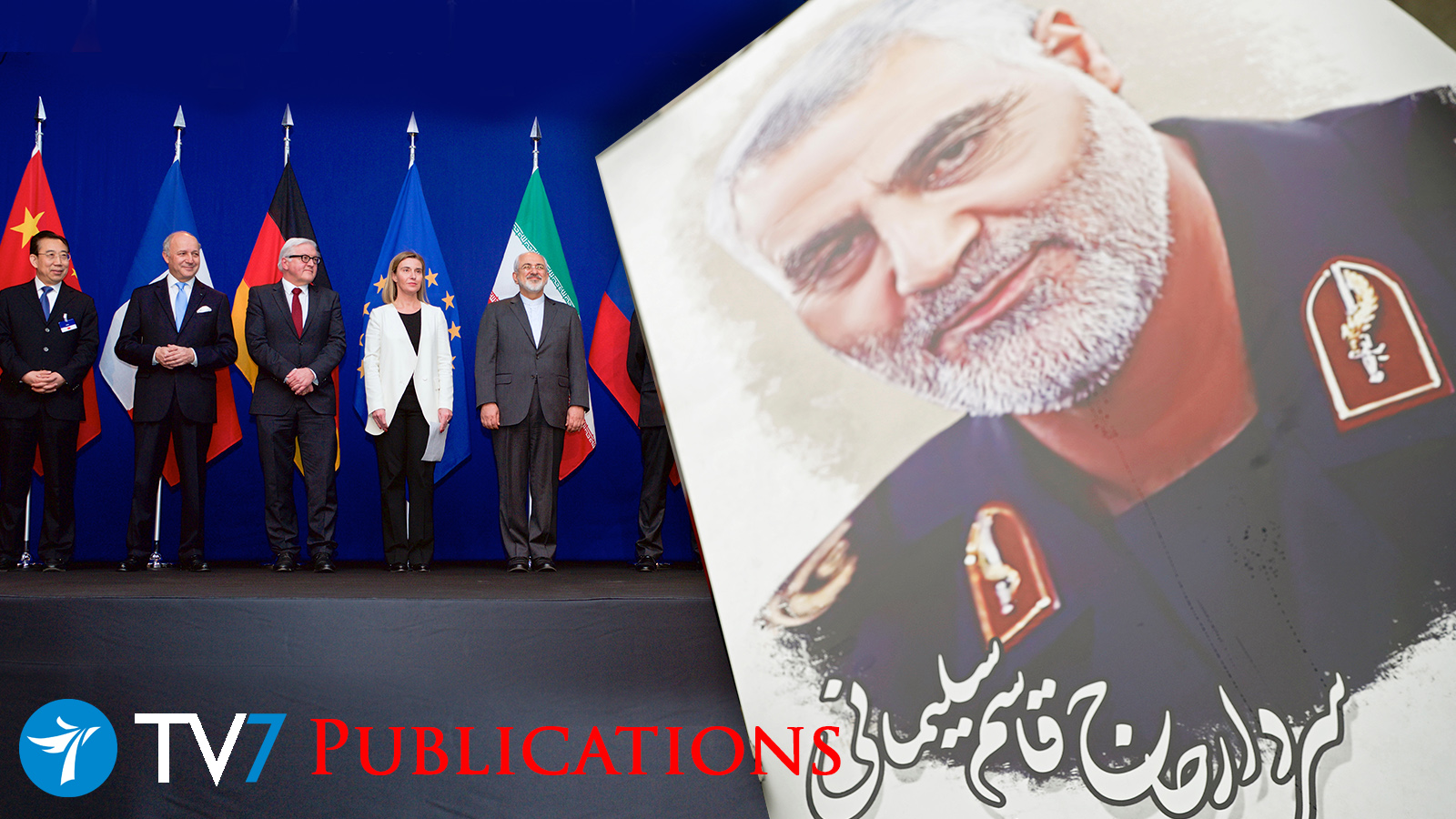By Colonel (res.) Dr. Eran Lerman, expert on Israel’s foreign relations, and on the Middle East and former deputy director for foreign policy and international affairs at the National Security Council in the Israeli Prime Minister’s Office.
A firm stand at this critical juncture may prove to be of use as part of the effort to bring Iran back to the nuclear negotiating table on terms more acceptable to the US and to Trump’s regional allies, including Israel.
Within the last few days, tensions between the U.S. and Iran have rapidly escalated to an unprecedented level. Not since the Libya raid in 1986 has the US taken action against a national target as senior as Qassem Soleimani, who as commander of the IRGC Qods Force was a key power player in Tehran.
Killing a personal favorite of Ayatollah Khamenei, and the coordinator of one of the most salient aspects of Iran’s regional and global strategy (namely, the effective and often murderous use of a network of committed proxies), has raised the stakes in US-Iran confrontation to an unprecedented level.
This targeted killing is certainly the result of a highly detailed, prolonged and penetrating intelligence effort, coupled with the growing efficiency of certain operational capabilities that go back to the days of Bush and Obama, but have gained in both lethality and accuracy over the years. But what apparently determined the timing also was the anger in Washington over the crossing of thresholds. First, the killing by Iran of an American citizen in Iraq, and second, an attack on the US embassy in Baghdad. The latter was particularly galling, not only because of the Vienna Convention and the symbols of American power and presence. It evokes bitter memories of Tehran, 1979-1989, and more to the point, of Benghazi, September 2012, where the US ambassador and three other diplomats were slain.
It is worth noting that in both events, the loss and the humiliation led to significant political pain for those in power. The hostage crisis helped bury President Carter in 1980, and “Benghazi!” was effectively used by the Republicans as a rallying cry in 2016. Trump, an astute reader of his angry base, had no wish to make Soleimani and Khamenei the ultimate arbiters of his 2020 campaign.
Iran, for its part, was driven by the deadly combination of severe economic hardship, due to the sanctions, and a growing sense of hubris and impunity about their successful terror attacks in response to this hardship. Thus, it was only a matter of time until this led them to a choice of action that would prove to be one provocation too far. With Soleimani orchestrating the attacks launched by elements of the Popular Mobilization Forces (al-khashd al-Sha’bi), and amidst a swirl of angry and deadly protests and acts of repression in Baghdad and elsewhere, it comes as no surprise that Iraq became the scene of a showdown that may bring the whole region to the point of explosion.
The call is now Khamenei’s to make, once the shock subsides. The IRGC will push for revenge. But to the extent that Tehran can still weigh its options rationally (or as some say, within the scope of “bounded rationality”), a far-reaching counter-strike against US, Israeli or Gulf targets might only exacerbate Iran’s troubles and play into Trump’s hands. The American people, to judge by the past, have never flinched in the face of major war operations imposed on it. And the US possesses the best military on earth. On the other hand, an Iranian strategy of slow, systematic and painful bleeding, one body bag at a time, has often proved to be beyond the endurance of Western societies.
Thus, for Trump (and for Israel, for that matter) it is important now to “teach” Tehran – using unusually brutal language, at least for effect – that any single killing will be met, as has already happened, with disproportionate use of force. The message may indeed go through. To judge by Secretary Pompeo’s recent tweet, both the Russians and the Chinese are being used to convey a message of de-escalation. Whatever this might be worth, the US still needs to demonstrate effective deterrence.
A firm stand at this critical juncture may prove to be of use as part of the effort to bring Iran back to the nuclear negotiating table on terms more acceptable to the US and to Trump’s regional allies, including Israel.
At the end of the day, it is not the vocal crescendo of threats and counter-threats that matters. It is the need to stay focused on the main challenge: namely, Iran’s military nuclear project. The killing of Soleimani may have somewhat hastened the Iranian decision to shed off all obligations under the JCPOA, but this anyway was bound to happen within the next few weeks or months.
What will decide the future of the nuclear project (and much beyond it) is whether the American deterrent presence – and as a marginal factor, the European stance – will persuade Khamenei that all rhetoric aside, he should tread carefully; that he may ultimately have no choice but to return to the negotiating table.
Ultimately, the message to Iran needs to be, as Trump “flamed” it in a tweet (in capital letters): IRAN WILL NOT HAVE THE BOMB.
Published by The Jerusalem Institute for Strategy and Security: https://jiss.org.il/en/lerman-after-soleimani-maintain-the-pressure-on-irans-nuclear-project/
